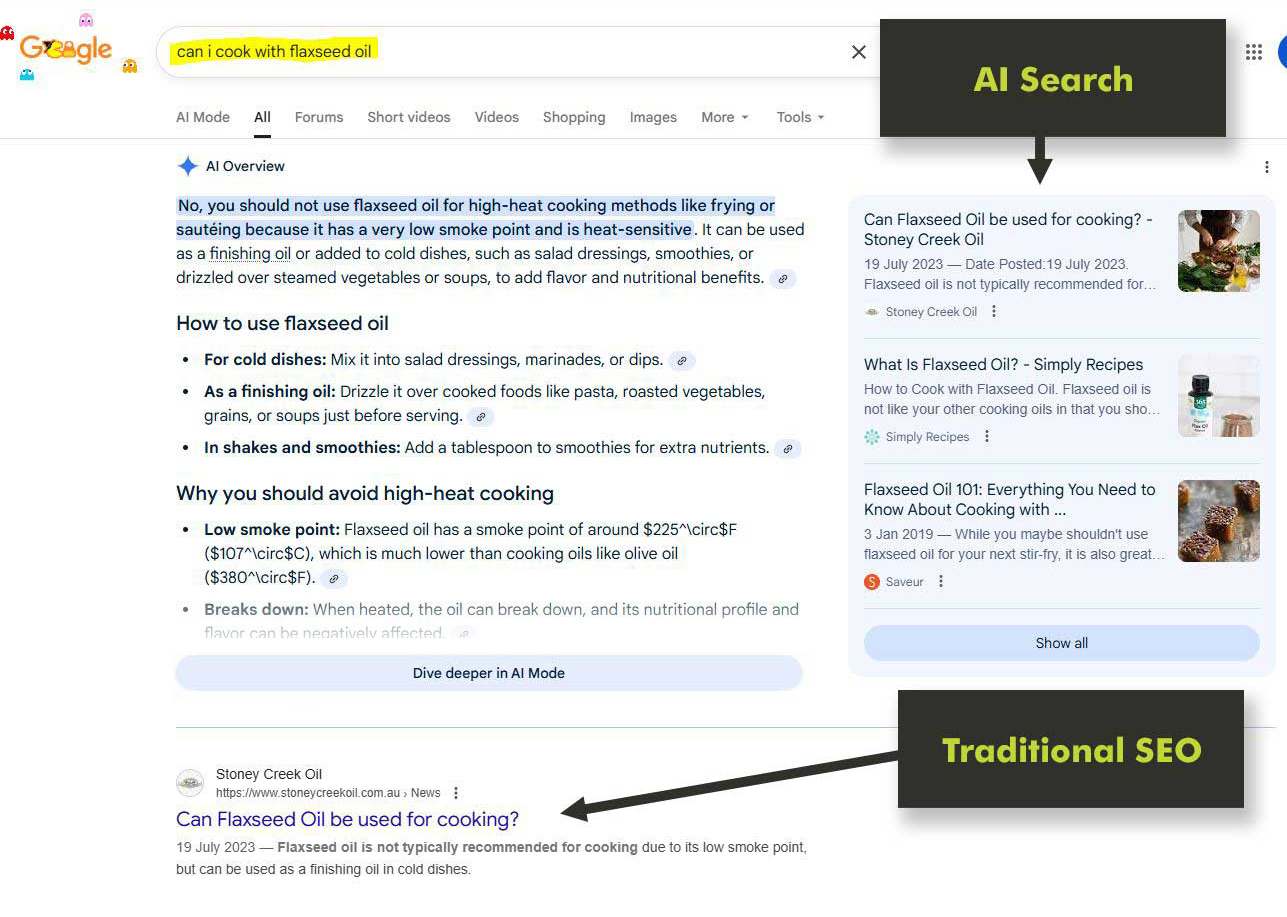Insights

How to optimise a website for AI Powered Search
From Google’s Search Generative Experience (SGE) to AI chat platforms like Gemini, ChatGPT, Perplexity and Microsoft Copilot, Artificial Intelligence is rapidly changing how web users find products, services and information.
Unlike traditional search engines, AI-powered search provides direct, conversational answers, summarised insights and brand recommendations, often without the user ever clicking through to a website.
While traditional SEO still matters, new strategies are required to ensure your brand is featured in AI responses.
To stay competitive, businesses must rethink their optimisation strategy.
Below are some guidelines on how to optimise websites for the new world of AI-powered search results.
Brand Signals
Brand signals are indicators that search engines and AI systems use to understand the trustworthiness, authority and online popularity of a brand.
They are essentially signals that prove a brand is credible, well-known and relevant in its field.
Key signals include:
- Branded Search Queries: People searching specifically for a brand name or products/services.
- Brand Mentions: References to a brand across the web (e.g., news sites, blogs, forums, social media, etc).
- Positive Sentiment and Reviews: Customer satisfaction signals (ratings, testimonials).
- Consistent Online Presence: Clear and aligned branding across all digital touchpoints.
AI models grade the strength of brand signals to select the most reliable, authoritative sources to include in their answers. They look for brands that are frequently and positively cited.
Content Marketing
Best practice is to create comprehensive, authoritative content that is easy for both humans and machines to read by using clear headings, short paragraphs and lists.
Well-researched, in-depth articles that fully answer questions from multiple angles have a high relevance.
Google and other AI models favor content that demonstrates experience, expertise, authoritativeness and trustworthiness E-E-A-T (Experience, Expertise, Authoritativeness, and Trustworthiness).
SEO (Search engine Optimisation) vs Answer Engine Optimisation (AEO): AEO is the process of making your content more discoverable and usable by AI systems that deliver direct answers. Instead of focusing on ranking pages in search results (as with traditional SEO), AEO focuses on being the source behind the answer.
- SEO = getting people to click your link in search results
- AEO = getting AI assistants to cite or recommend your brand in their answers
Tip: Answer questions directly. Start with a concise answer to a user's question, similar to optimising for featured snippets, then provide supporting details. Also use natural language and avoid jargon. Be precise in your language, punctuation and context.
Structure for readability is key:
- Use short paragraphs (two to three sentences).
- Use bullet points, numbered lists and comparison tables.
- Employ descriptive headings
- Use headlines H1, H2,H3 in sequential order to create a logical content flow.
- Include relevant images, videos and infographics with descriptive alt text and transcripts.
Keywords: Focus on topic relevance, not just keywords as AI systems prioritise understanding the topic's relevance through natural language patterns rather than exact keyword matches.
Technical
Similar to traditional SEO, websites need to provide clean structures, fast loading speed, accurate data, strong metadata and more to help AI models identify authoritative information.
Items to look out for:
- Enable AI crawling by ensuring your robots.txt file allows AI crawlers and that your firewall rules don't block them.
- Add a LLMs.txt. This file format is a proposed standard meant to help large language models (LLMs) better understand and use content from websites.
- Use schema markup. (Also called structured data, is a type of code added to your website that helps search engines and AI systems better understand the content on your pages.)
- Maintain good traditional technical SEO practices, such as a clean sitemap, page load speed, meta tags, canonical URLs, image optimisation including alt tabs, …
Conclusion
Artificial intelligence is reshaping how people discover brands online. Platforms like Google’s SGE, ChatGPT, Perplexity and Copilot increasingly deliver direct, conversational answers and recommendations. They need to get it from somewhere.
Traditional SEO focuses heavily on ranking webpages in search results through keyword optimisation, link-building and technical performance. While those fundamentals still matter, AI search introduces new priorities. Instead of simply matching keywords, AI models evaluate brand authority, content quality and structured data to determine which sources are credible.
Strong brand signals, such as positive reviews, consistent online presence and frequent brand mentions, help AI choose who to recommend.
For both traditional SEO and AI, content must be structured for both humans and machines, with clear answers, E-E-A-T principles and well-organised metadata.
In short, SEO is shifting from “how do we rank?” to “how do we get referenced by AI?”
Businesses must evolve their strategies to ensure their information is understood, trusted and fetchable by AI systems, from improved technical foundations to building brand authority and publishing comprehensive, well-structured content.
To learn more feel free to reach out to one of our experts and organise a meeting.
